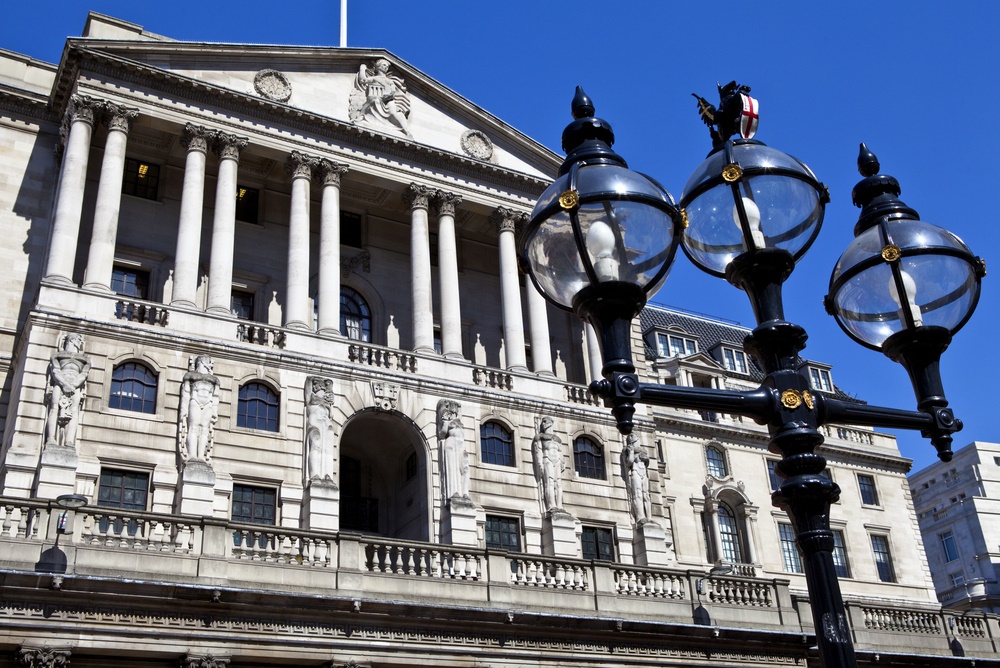

A senior official at the Bank of England has issued a fresh warning about the risks associated with cryptocurrencies.
Fast-growing cryptocurrency assets could pose a danger to the established financial system, deputy Bank governor Sir Jon Cunliffe told the BBC.
The Bank of England has for years been warning about the dangers of bitcoin etc, echoing similar reservations from many other central banks around the world.
Sir Jon told the BBC that not many UK households currently hold assets such as Bitcoin, however he admitted this is becoming more mainstream nowadays.
But he warned that if their value fell sharply, it could have a knock-on effect, and the Bank needed to be ready to contain those risks.
Sir Jon was speaking on the BBC’s Today programme, where he revealed that currently only 0.1 percent of UK households’ wealth was in cryptocurrencies.
Indeed, it seems that roughly 2.3 million people are estimated to hold cryptocurrency assets, with an average amount per person of about £300.
During the interview, Sir Jon said that cryptocurrencies had been “growing very fast”, with people such as fund managers wanting to know whether they should hold part of their portfolios in crypto-currencies.
“Their price can vary quite considerably and they could theoretically or practically drop to zero,” he reportedly said.
He also talked about the need for countries to implement suitable regulatory frameworks to deal with the mainstream arrival of cryptocurrencies.
“The point, I think, at which one worries is when it becomes integrated into the financial system, when a big price correction could really affect other markets and affect established financial market players,” he added. “It’s not there yet, but it takes time to design standards and regulations.”
“We really need to roll our sleeves up and get on with it, so that by the time this becomes a much bigger issue, we’ve actually got the regulatory framework to contain the risks,” Sir Jon reportedly said.
The extreme volatility of cryptocurrencies has long worried governments and regulators, but this didn’t stop the country of El Savaldor from adopting Bitcoin as a legal tender this year.
But most countries are far more reserved.
As far back as 2014 for example, the Bank of England warned that Bitcoin could pose a threat to financial stability should it see widespread adoption.
Then in May this year governor of the Bank of England (BoE) Andrew Bailey, once again expressed his concern about digital currencies.
Andrew Bailey is known for his reluctant stance on decentralised money, and he had a very blunt warning for people investing in cryptocurrencies. He said cryptocurrencies “have no intrinsic value” and people should only buy cryptocurrencies if they are prepared to lose all their money.
Weeks after that he said cryptocurrencies and similar assets were a danger to the general public.
That said, the UK and Bank of England earlier this year set up a taskforce after the Chancellor, Rishi Sunak had asked the bank to look at the case for a new “Britcoin”, or central bank-backed digital currency.
Other countries are clamping down on cryptocurrencies.
China for example, where many crypto miners used to be based, officially banned cryptocurrencies in 2019, but this year began taking much stronger measures against crypto transactions and mining activities.
China’s central bank has also recently declared that it considers all cryptocurrency transactions “illegal”.
And the US has also stepped up its efforts against cryptocurrencies, and is said to be formulating a regulatory framework.
The US Treasury recently slapped cryptocurrency exchange Suex with sanctions for its alleged role in laundering ransomware payments.
More bad news for Google. Second time in less than a year that some part…
Federal office that tackled misinformation and disinformation from hostile nations is closed down, after criticism…
After Nvidia admits it will take $5.5 billion charge as Trump export limits of slower…
Trump continues to target his former CISA head, signing a new executive order targetting Chris…
Two Chinese retailers warn customers in America that prices will increase next week, as Trump's…
Engineer Cristina Balan wins latest round in her long-running defamation claim against Elon Musk's EV…